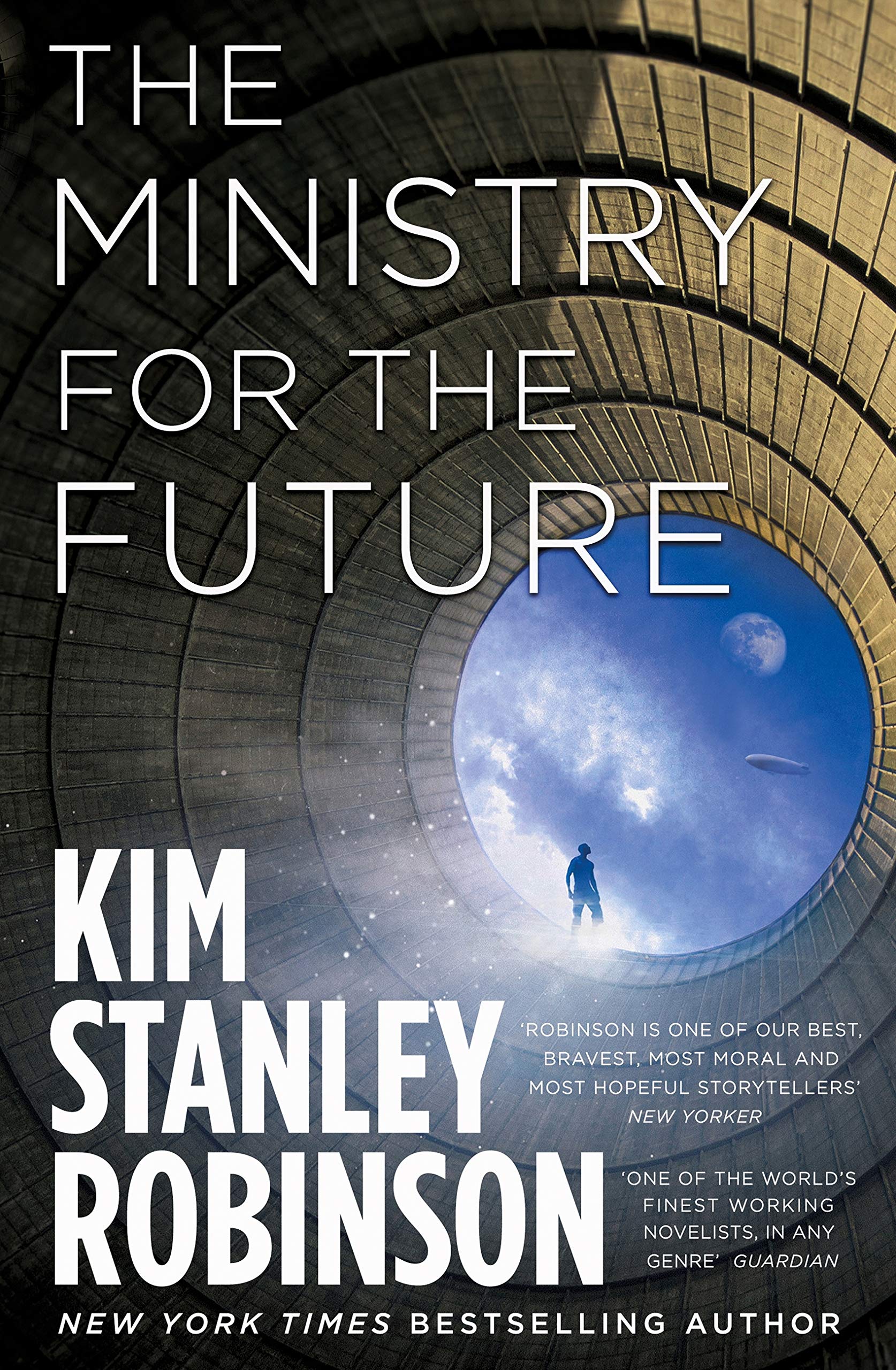Monika reviewed The Ministry for the Future by Kim Stanley Robinson
Repackaged state power as a solution to the climate crisis.
4 stars
What would a worldwide, lasting revolution look like? What would be the obstacles and what tactics would be needed to overcome them? How are we going to survive climate change? These are the themes Kim Stanley Robinson tackles in his 570-page cli-fi novel THE MINISTRY FOR THE FUTURE.
The narrative is disjointed, with epistolary chapters placed throughout. If you roll with it, it works well. You get a well-researched, fairly well-rounded picture across class, power, and geography. The format makes for a clever way to introduce details that otherwise might not fit into a traditional narrative. I also appreciate the global perspective of this book. The U.S. is not at the center at all, and is critiqued heavily and fairly.
THE MINISTRY FOR THE FUTURE envisions a world that includes the Half-Earth concept as one of its solutions to combat climate change. Half of the planet would be reserved exclusively for nature; the other half for humans, centered in sustainable cities. It sounds plausible in the novel, but I had this nagging, bad feeling about it. I kept thinking, you're never going to get 100% compliance on that, no matter how many incentives you offer. And we have a terrible history of forcing Indigenous peoples off their land. Nowhere in the book is that addressed and, so far, what I'm reading about Half-Earth doesn't assuage my concerns.
So, I'm feeling meh about this novel. When I was able to believe it, its hopefulness felt inspiring and relieved some of my fears. When cynicism (reality?) got the best of me, I had to set it aside for a bit, which is why it took me so long to finish it. Plus, I have major problems with a top-down approach that is just repackaged state power claiming to be a solution. (Obama loving this book should have been a red flag for me.) But this is science fiction. It doesn't have to actually solve anything. There were plenty of moments where the book imagines creative ways to forge ahead, and for that, I'm glad I read it, even if I'm probably not going to pick up another Kim Stanley Robinson book in the future.

